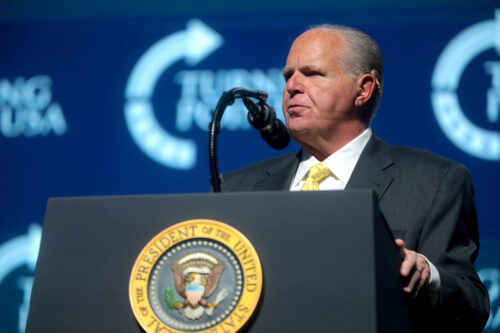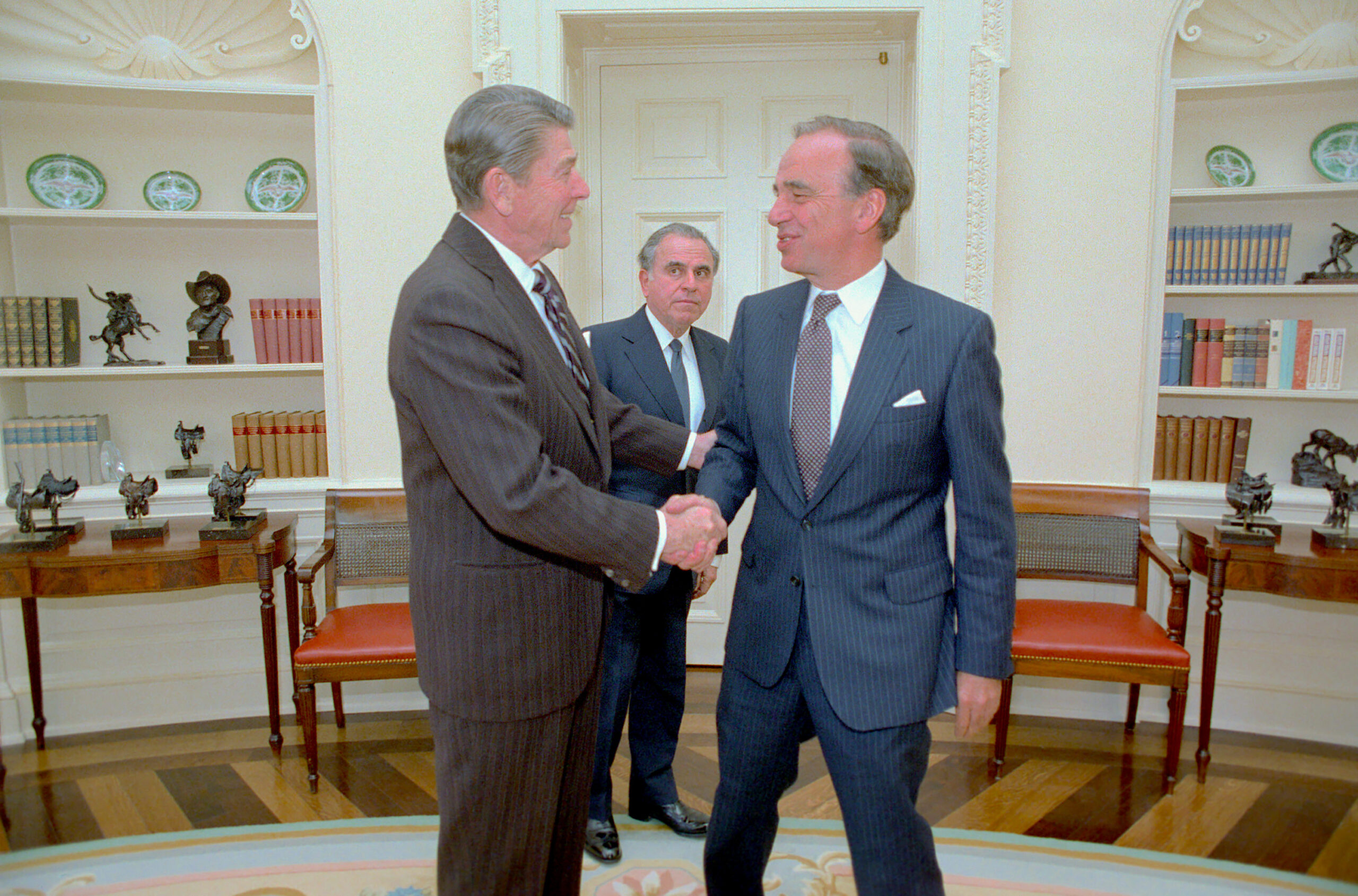Impartial Journalism Must Be Saved
Journalism by definition must be impartial and non-partisan, but it is rapidly disappearing in a landscape dominated by media feverishly wedded to either of two political camps.
By Joe Lauria
Special to Consortium News
Special to Consortium News
Aside from the Five Ws, the most basic thing a cub reporter learns is that there are two or more sides to every story and a reporter must put her or his biases aside to fairly tell it. Newswriting demands a neutral point of view, favoring none of the sides. The facts will determine who might be the villain.
In reporting on conflicts—the essential drama inherent in journalism—there’s plenty of gray area. One side is rarely completely right and the other side totally wrong. It’s a journalist’s responsibility to lay out the complexities of the story and not not feed the readers’ biases. (In international news a journalist should shed his national biases and not report from the outlook of only one side, i.e, America is always right and its adversaries always wrong.) An open-minded audience that seeks as close to the truth as possible will welcome this.
While there has always been bias in journalism, reporters used to be trained to at least try to play a particular role as a detached observer. It was considered the essence of professional journalism. Today that effort is clearly being abandoned.
This change in American journalism began during the Reagan administration with the 1987 repeal of the Fairness Doctrine, which mandated equal air time to candidates, and with the rise of right-wing media (Rush Limbaugh in 1988 and Fox News in 1996), a topic fully explored by our late, founding editor, Robert Parry.
Parry criticized the rise of right-wing talk radio and Fox News for putting a dent in objective reporting and openly promoting a Republican agenda. In his last published article, he wrote:
“It seems that since I arrived in Washington in 1977 as a correspondent for The Associated Press, the nastiness of American democracy and journalism has gone from bad to worse.In some ways, the Republicans escalated the vicious propaganda warfare following Watergate, refusing to accept that Richard Nixon was guilty of some extraordinary malfeasance (including the 1968 sabotage of President Johnson’s Vietnam peace talks to gain an edge in the election and then the later political dirty tricks and cover-ups that came to include Watergate).Rather than accept the reality of Nixon’s guilt, many Republicans simply built up their capability to wage information warfare, including the creation of ideological news organizations to protect the party and its leaders from ‘another Watergate.’ […]Though I don’t like the word ‘weaponized,’ it began to apply to how ‘information’ was used in America. The point of Consortium News, which I founded in 1995, was to use the new medium of the modern Internet to allow the old principles of journalism to have a new home, i.e., a place to pursue important facts and giving everyone a fair shake. But we were just a tiny pebble in the ocean.”
Parry began Consortium News a year before Fox News was launched. He especially delved into the Reagan administration’s and then CIA Director William Casey’s role in “perception management.”
Parry unearthed documents which exposed a propaganda campaign under Casey’s direction that was described as “an inter-governmental network to promote and manage a public diplomacy plan designed to create support for Reagan Administration policies at home and abroad.” Parry wrote:
“This commitment to what the insiders called ‘perception management’ began in earnest with the Reagan administration in the 1980s but it would come to be the accepted practice of all subsequent administrations, including the present one of President Barack Obama.In that sense, propaganda in pursuit of foreign policy goals would trump the democratic ideal of an informed electorate. The point would be not to honestly inform the American people about events around the world but to manage their perceptions by ramping up fear in some cases and defusing outrage in others depending on the U.S. government’s needs.”
Parry quoted one of the documents:
“As a result of Reagan’s decision directive, an elaborate system of inter-agency committees was eventually formed and charged with the task of working closely with private groups and individuals involved in fundraising, lobbying campaigns and propagandistic activities aimed at influencing public opinion and governmental action.”
One of the “private groups” involved was Rupert Murdoch’s media empire. Parry reported:
“In February 1983, global media magnate Rupert Murdoch volunteered to help the Reagan administration’s propaganda strategy for deploying U.S. mid-range nuclear missiles in Europe by using his newspapers to exacerbate public fears about the Soviet Union, according to a recently declassified ‘secret’ letter.”
“We’ll know when our disinformation program is complete, when everything the American public believes is false,” Casey said at Reagan’s first staff meeting in early February 1981, according to Barbara Honegger, assistant to the chief domestic policy adviser to Reagan, who was there. This is a chilling statement when considering how corporate media in the U.S., in their national security and foreign affairs reporting, have essentially become mouthpieces for the intelligence agencies, who routinely launder disinformation through big media.
Reagan meeting with Murdoch in the Oval Office on Jan. 18, 1983, with Charles Wick, director of the U.S. Information Agency, in the background. (Reagan presidential library)
Said Democrats Should Fight Back
Parry argued for Democrats and liberals to fight back against this hijacking of journalism. But in his later years, Bob began to decry the rise of an equally partisan Democratic media, in particular how it covered Ukraine and Syria (equally as badly as Fox) and especially the 2016 election with the rise of the Russiagate theory, which he led the way in demolishing. In that last article, a month before he died, Parry said:
“The trend of using journalism as just another front in no-holds-barred political warfare continued – with Democrats and liberals adapting to the successful techniques pioneered mostly by Republicans and by well-heeled conservatives.”
This was never more evident than in the obsessive and erroneous coverage of Russiagate by MSNBC, the Democrat’s Fox News, and other liberal media in an era when even the attempt at impartial journalism—literally falling into neither partisan camp—is rapidly becoming a thing of the past.
Given the hyper-partisanship into which the media has devolved, Consortium News can be perplexing for some readers. While we publish many articles critical of Donald Trump and his policies, we also run many pieces critical of Joe Biden and the Democratic Party.
Because Consortium News was in the forefront of Russiagate skepticism, partisan Republicans may have falsely thought that we were in their camp and can’t accept that we criticize Trump and their party. Partisan Democratic readers ignore our criticism of Trump and focus only on our critical views of the Democratic Party. But this is unfortunately what happens when one reports and analyzes facts without political party bias.
A few weeks ago someone pitched a series of articles to us that would document Trump’s lies and fraudulent behavior. We agreed, but only if we ran a series of articles on Biden’s lies. Not surprisingly, that condition was turned down. The idea that a media outlet would look objectively and skeptically at both major presidential candidates, the job journalism is supposed to do, was a non-starter. It was a statement about the sad state of journalism.
Consortium News is also faced with a pernicious trend of condemning an entire publication because one disagrees with how one subject is covered out of the hundreds of other articles that the reader might agree with. If you don’t like one or two of our writers, consider that newspapers are meant to appeal to various audiences.
None of this is disorienting if one understands what impartial—that is—what journalism should strive for: a sophisticated look at politics in which the public’s interests as a whole are represented, not just the interests of one party. This now firmly established hyper-partisan, even fanatical journalism of both camps threatens the survival of journalism and a website like Consortium News.
That’s why we urge you to help a bastion of impartiality like our site to continue. The size of a media outlet does not indicate its worthiness. We may still be a pebble in the vast sea of perverse partisan propaganda, but we believe it’s a pebble crucially worth saving.
Joe Lauria is editor-in-chief of Consortium News and a former correspondent for The Wall Street Journal, Boston Globe, Sunday Times of London and numerous other newspapers. He began his professional career as a stringer for The New York Times. He can be reached at joelauria@consortiumnews.com and followed on Twitter @unjoe .








Geen opmerkingen:
Een reactie posten